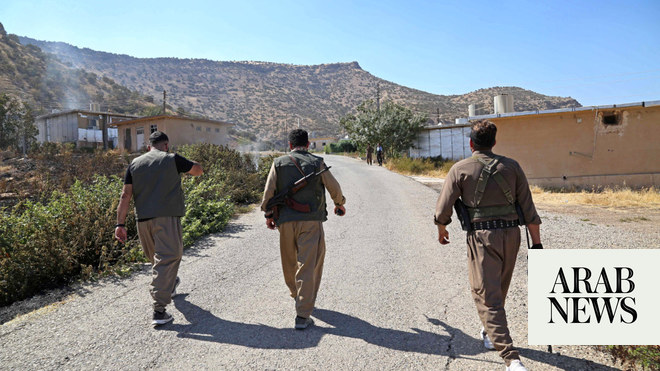
Kurdish leader Masoud Barzani had to test the Iraqi Kurds chance in fulfilling their historic dream of separating and establishing an independent state. Although failure was most likely, why did Barzani do it?
Perhaps if he didn’t, he would have been accused of failing his people. This is delicate because Barzani was in charge of the military and political joint effort with Baghdad’s government over the past few years and he cooperated with the international community to fight terrorist organizations – Kurdish blood was shed for the sake of this mission.
However, it was wrong that he conducted a referendum, whose outcome is previously known since Kurds wish to accomplish their historic dream of establishing an independent state – wrong because there is no single regional state willing to support Barzani, given that the separation represents a threat to everyone.
This applies to Southern Yemen as well and other plans of separation in the region. To reach that, it is not enough to have the majority of that region vote in favor of separation but what is more important is an international recognition of the referendum’s outcome.
For this, Saudi Arabia, Turkey, and Iran crossed paths regarding this matter despite the different policies of these regional states – they opposed Kurdistan’s separation; or in political terms, the countries announced that they stand with a unified Iraq. World powers also supported them but quietly.
At the same time, there is an essential message behind failing Iraqi Kurdistan Region’s separation: local or regional powers will not be allowed to change internally, not only Kurds but also groups affiliated with Iran in the region whether in southern and central Iraq or elsewhere. The message is also directed to countries in the region that are exploiting the current chaos to impose their small republics, already scattered from wars.
The growing Saudi-Iraqi relations have contributed in correcting the foreign policy towards these areas that need to be approached rather than disregarded.
Although we are against Iraq’s division in favor of any party, this doesn’t mean to stand still towards the attempts to weaken the Iraqi-Kurdish component – a significant one in Iraq and the region. We’re not supposed to accept undermining the authority of Barzani, a key leader in Iraq and the region as a whole.
There are Kurdish forces that seek to exploit the current crisis against Masoud and his authority. Turkey, Iran and Baghdad’s government continue their pursuits to weaken him via adopting sanctions on the territory and its powers – in addition to threatening it militarily.
True, Kurds mistook in conducting the referendum and assuming that its outcome would be a green-light to establish an independent state. This step was faced with an Iraqi and regional veto. Consequently, the separation project was aborted. Later on, the Kurdish crisis should be resolved not through confrontation and escalation but reconciliation instead between Erbil and Baghdad; the project has already been aborted and came to an end.
The attempts of some Iraqi forces to hold accountable Iraqi-Kurdish leaders serve neither Baghdad nor Haider al-Abadi’s government’s interest – they actually widen the gap. Let’s remember that the Kurdish supportive stance in Baghdad contributed in terminating Nouri al-Maliki term when he refused to step down and wanted to continue as a prime minister with absolute powers for a lifetime.
Kurds are essential to the balance of power in the Iraqi political system, constructed during the US occupation.
Exploiting the crisis to weaken Kurds and their government is an Iranian project and it suits armed militias such as the Popular Mobilization Forces even if they raise the Iraqi flag and present themselves as legit. They remain a militia that challenges the Iraqi army, the country’s legit forces and threatens Iraq’s unity.
Until the conflicts on the separation and the threats to marginalize the capital’s powers come to a close, the solution remains to be the implementation of promises and commitments that formed the modern state and its constitution. The Iraqi state is for all Iraqis and not for the majority, the most armed, religious references, armed tribes, and militias or foreign forces.










